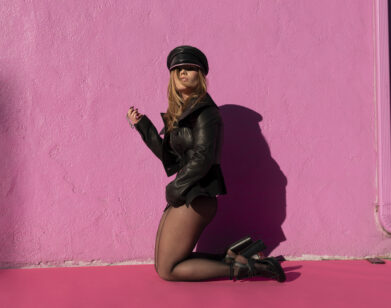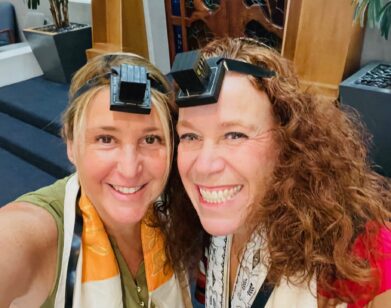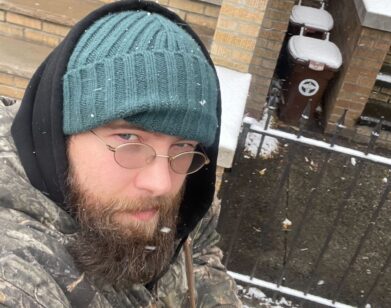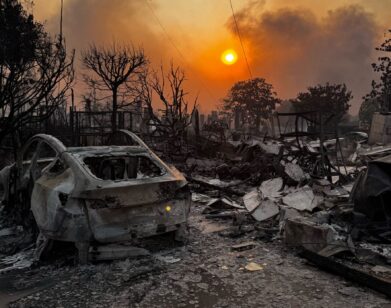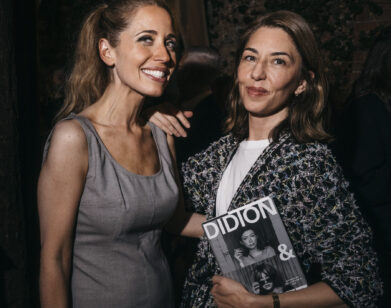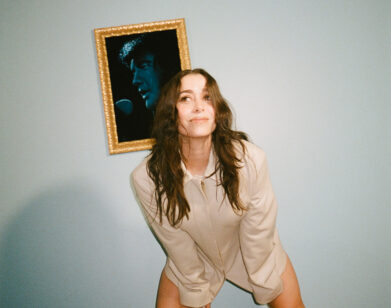Queen & Slim Star Jodie Turner-Smith Tells Colin Farrell Where Home Is
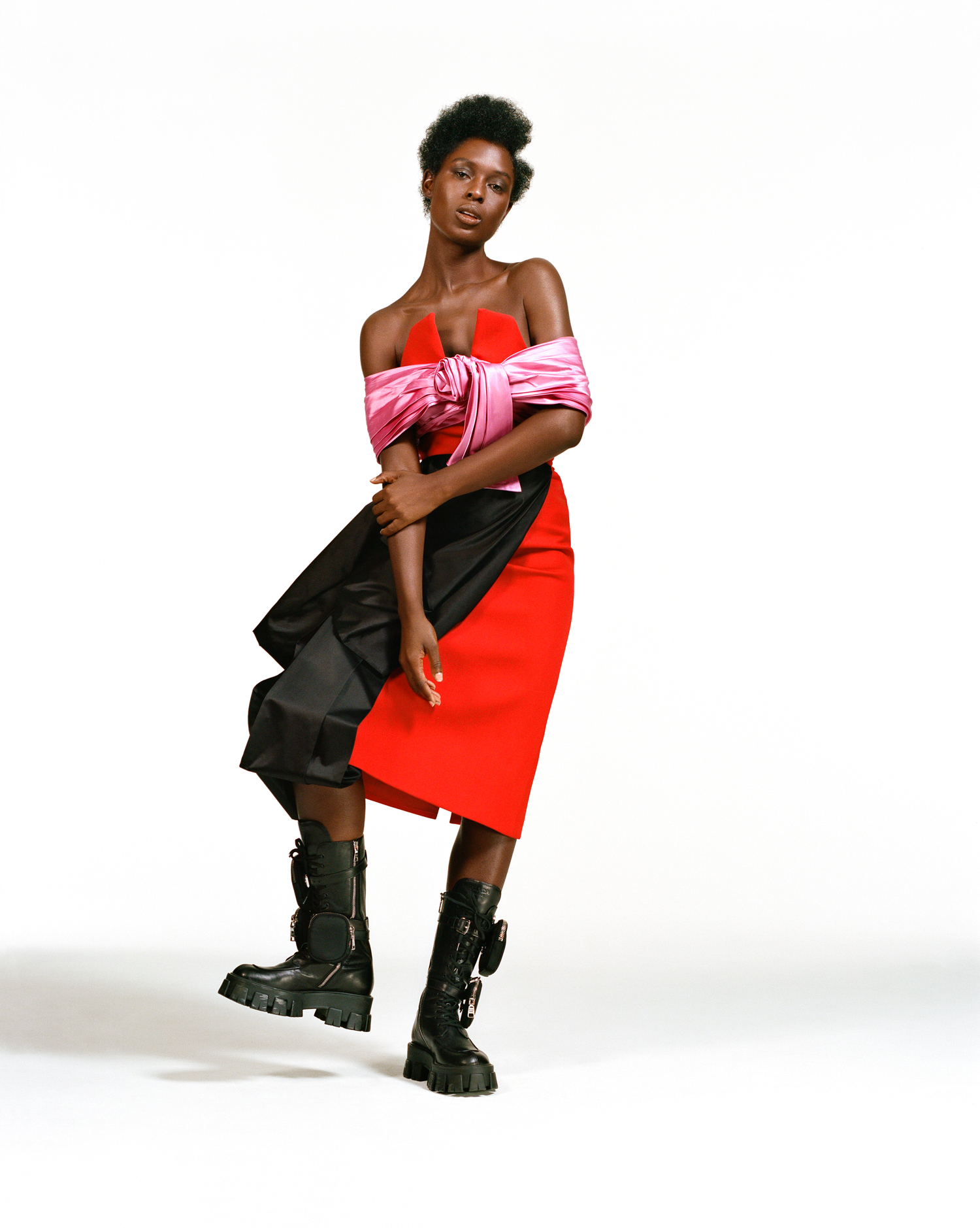
Dress and Boots by PRADA.
Unlike most performers from across the pond, Jodie Turner-Smith actually got her start in Hollywood. The 32-year-old actress arrived to Los Angeles 10 years ago without a screen credit to her name. That changed when she was cast as a siren in HBO’s vampire soap True Blood, a spark that led to bit parts in everything from a Nicolas Winding Refn movie to a Zayn Malik music video. But it wasn’t until she landed a major role on SYFY’s Nightflyers, George R.R. Martin’s other show, that Turner-Smith began to gain wider recognition. Her new movie, Queen & Slim, a crime drama written by Lena Waithe and co-starring Daniel Kaluuya, is poised to see her break into the mainstream—and into the awards conversation. In anticipation of the film’s release, Turner-Smith sat down with Golden Globe winner Colin Farrell, her co-star in the upcoming domestic-robot drama After Yang, to compare notes on why there’s no place like (and no such thing as) home.
———
COLIN FARRELL: So you’re just off a plane, I believe. Where wast thou?
JODIE TURNER-SMITH: I was in London.
FARRELL: What wast thou doing?
TURNER-SMITH: Oh, you know, just trying to secure the next gig.
FARRELL: Oh, you were auditioning? How do you find them? They’re very necessary, of course, though maybe not even legal.
TURNER-SMITH: They’re like the hazing process of acting, because it’s nothing like being on set. It’s so different reading with the actor you’re going to be working with as opposed to a casting person. I’ve figured out how to enjoy that part of it. I always look at it like I’m not going in to get the job. I’m just going in to enroll some people onto Team Jodie.
FARRELL: That’s a wise, Jedi-like approach, because then it doesn’t become so much about the result. When it’s always about the result, then you miss the moment. I still bear the scars of hazing, even though it’s been a while.
TURNER-SMITH: Do you even have to audition anymore?
FARRELL: I’ve been lucky enough to now walk into a room without that facing me. But back in the day, lots. So you were back home in England?
TURNER-SMITH: Yes. I’m from Peterborough, which is two hours north of London. My little brother and sister, my older sister, and my cousin all came to see me, so I had a full house of guests.
FARRELL: How long have you lived in Los Angeles?
TURNER-SMITH: I’ve been here for ten years now.
FARRELL: I’m an expat and immigrant, but I don’t struggle with it like I used to. I am, however, still interested in the philosophy of what home means to a person. What’s the difference between the life you lead in L.A. versus the life you left back home?
TURNER-SMITH: I think of L.A. as my home now, in large part because I became the entity that I am in L.A. I always say to people that my coming-of-age happened in L.A., the unraveling of the person I was pretending to be for a long time, and then finding of the person I feel like I now am… I don’t think I’m answering your question.
FARRELL: You very much are. The person you were pretending to be—was that a result of not knowing where you fit in?
TURNER-SMITH: I’ve always been “other” in all the spaces that I’ve been in. Even when I first moved to America, just the idea that I was a dark-skinned black girl from England with an accent. It’s one thing to be a black girl, but it’s another to be a dark black girl. I was chastised for that. I was chastised for the way I spoke. And because of the personality that I have, I immediately began to adapt into being the most accessible form of Jodie for other people.
FARRELL: Like so many of us, you’ve been acting a lot longer than your career.
TURNER-SMITH: I’ve been acting for a long time. I acted like an American girl, I acted like a sorority girl.
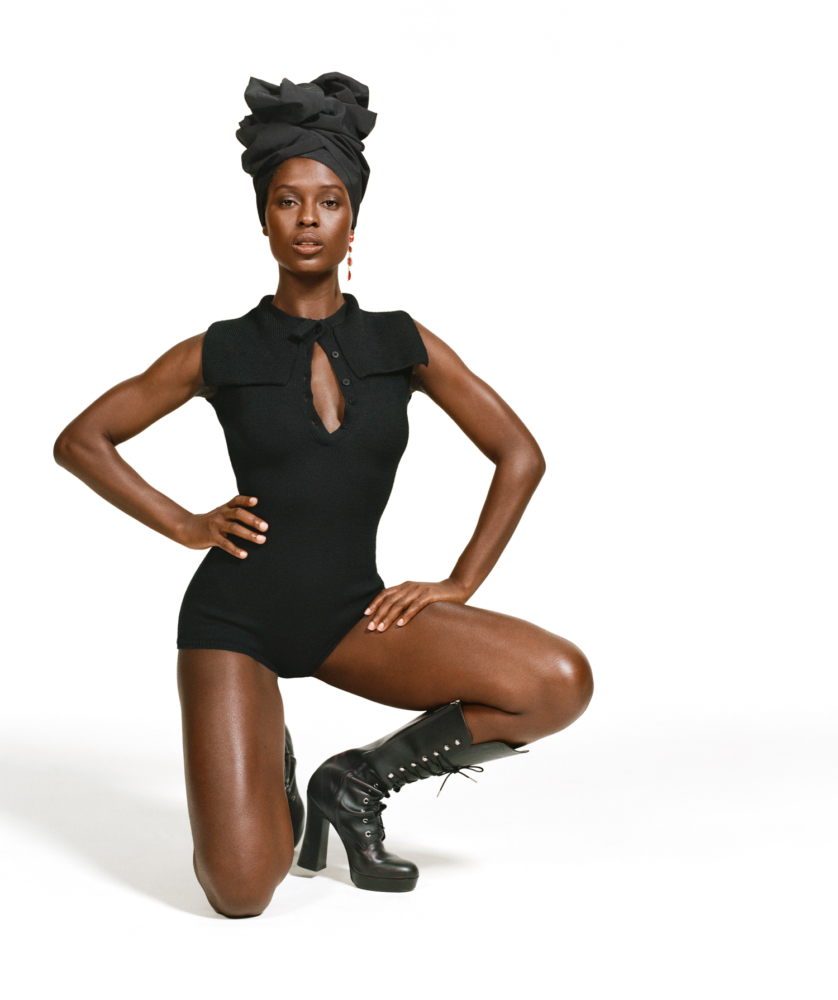
Bodysuit by DIOR. Custom Head Wrap by LINDSAY WRIGHT. Earring from RAINBOW UNICORN BIRTHDAY SURPRISE. Boots by MICHAEL KORS COLLECTION.
FARRELL: I had a Rolodex of personalities I ran through, some at the same time. Did you feel a lack of permission to be who you are?
TURNER-SMITH: Definitely. And when you move to America, there’s this idea of the American dream and what that means, and there’s never really a conversation of like, “What do you want to do? What makes you happy?” It was more, “What should you do or be so that you can be successful in this world and create a better life for yourself than your parents had?” That shaped the person I felt like I needed to be.
FARRELL: That’s exactly what my experience was in my late teens and early twenties. But I find Los Angeles to be a very forgiving town, and accepting of whatever one chooses to be, no matter if you’re an economist, a surfer, a skater, or an artist. This is a good place to make big life changes. I asked about home because Ireland still calls to me. My life is very much in Los Angeles. I have dear friends and two beautiful children—I have a life here. I don’t walk around with a nationalist, cultural melancholy. I don’t long for Ireland all of the time. But when I get home, Ireland makes sense to me in a way that Los Angeles never does.
TURNER-SMITH: Los Angeles is where I feel the most at home. Even with my family, I feel sort of “other.” I’m the only one of my siblings who wasn’t born in Jamaica. For a long time, I didn’t feel very connected to Jamaican culture, but because I was raised so heavily with that cultural influence, I realized that my inner monologue is a Jamaican woman.
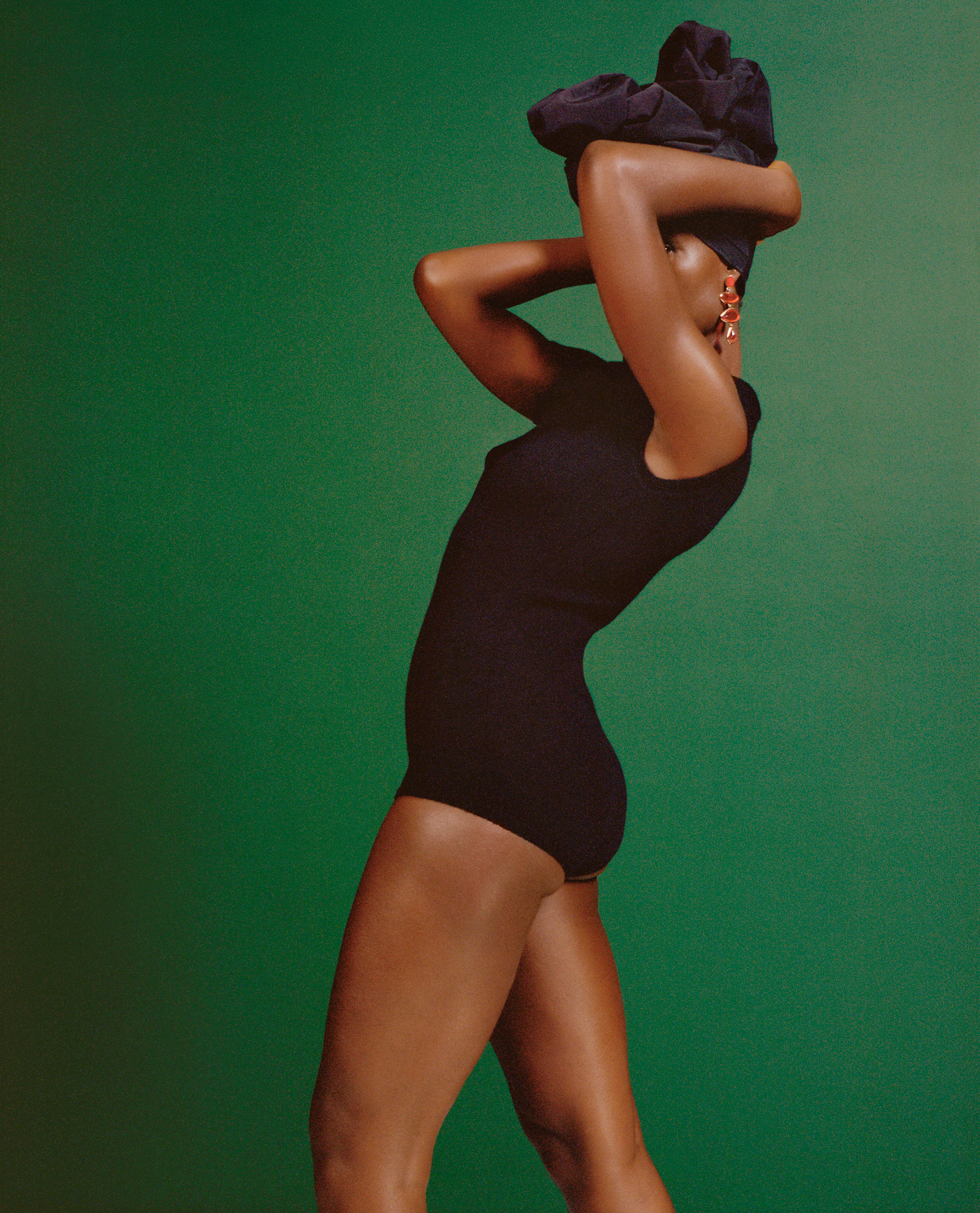
Bodysuit by DIOR. Custom Head Wrap by LINDSAY WRIGHT. Earring from RAINBOW UNICORN BIRTHDAY SURPRISE.
FARRELL: That’s the signature you carry. Ireland is the signature I carry with me. It’s the creative, the emotional, the intellectual DNA that I will never escape, and I’m okay with that. I love coming back to L.A., but I don’t carry it with me. It sounds like Jamaica is the DNA you carry with you.
TURNER-SMITH: Definitely.
FARRELL: Tell me about Queen & Slim. How did that project come to you?
TURNER-SMITH: It’s funny, because going back to that conversation about where you feel at home, and pretending to be someone else, auditioning for that movie brought up a lot of emotions, because they wanted an American girl. And I’ve been living in America long enough where, at the end of the day, in America I’m regarded as an American. At face value, when I walk into a room, I’m seen as an African-American girl. Being in this country for so long, I’ve been taking in those experiences. But so much was being called into question when I was going through the audition process, because Daniel was already British. So, again, I needed to be more American to other people, and because I wasn’t American, that was the thing that was making me not good enough. I was so triggered that after two of my three auditions, I went into the car and just cried.
FARRELL: Tell me about Queen. What is she like?
TURNER-SMITH: There are so many elements of myself in her. She goes through this journey of softening, in a way. That callousness that comes from feeling like you have to survive on your own—I really empathized with that.
FARRELL: What does she do for a living?
TURNER-SMITH: She’s an attorney who has spent her life defending people facing the death penalty, black men and women. Queen and Slim are in Ohio, where capital punishment is still legal, and basically, she goes on a first date with Slim, which isn’t particularly memorable, and on the way home, they get pulled over by the police, and they end up killing the police officer. Instead of turning themselves in, they decide to go on the run.
FARRELL: It sounds incredibly intense.
TURNER-SMITH: It’s intense, it’s important, and it’s provocative, and I really wanted to be a a part of telling this story. When we watch the news or pick up our phones, we see all over the country these acts of violence against black men and women, and how many times they’re executed by the police. There is no justice in that.

Dress and Boots by PRADA.
FARRELL: Where did you shoot this?
TURNER-SMITH: It was shot in Ohio and in New Orleans. We got to live in New Orleans for three months.
FARRELL: That city, more than most cities in America, had an incredible effect on me. The history, the melancholy, the sense of pain, and the music that was used as a way to make sense of gross injustice.
TURNER-SMITH: I mean, jazz was born there. And I got to experience Mardi Gras, which was insanity.
FARRELL: That is such a clusterfuck. But even on a regular Tuesday night, the French Quarter is a disaster.
TURNER-SMITH: It was intense, but there’s something about the sense of celebration that I find so beautiful. I also found the black people in New Orleans to be incredibly special. No matter how much injustice and oppression there is in the world, there is still pride in this community that cannot be destroyed. I felt very alive there.
FARRELL: I get shivers up my spine walking around New Orleans at night. Through the abject cruelty of what that city was initially a port for, there’s this sense of community, this sense of man and woman needing each other
TURNER-SMITH: That’s also the thing about this movie. Lena Waithe said that it’s about two people falling in love while the world burns down around them. There’s a lot of black tragedy that we’re constantly seeing, but what I think is beautiful about this story is that while this horrible thing is going on, there is this beauty that cannot be killed, or controlled, or extinguished. This film feels like a celebration of that.
FARRELL: Fuck, when can I see it?*
*Queen & Slim opens nationwide on November 27.
———
Hair: Takisha Sturdivant-Drew using TSD Hair Extensions at Forward Artists
Makeup: Grace Ahn using MAC Cosmetics at Julian Watson Agency
Set Design: Michael Younker at Lalaland Artists
Production: Mateen Mortazavi at Dirty Pretty Productions
Photography Assistants: Matt Baffa and Eduardo Silva
Fashion Assistant: Jared Gilbert
Tailor: Lindsay Wright
Manicure: Elina Ogawa using Zoya at Bridge Artists
Special Thanks: Smashbox Studios

